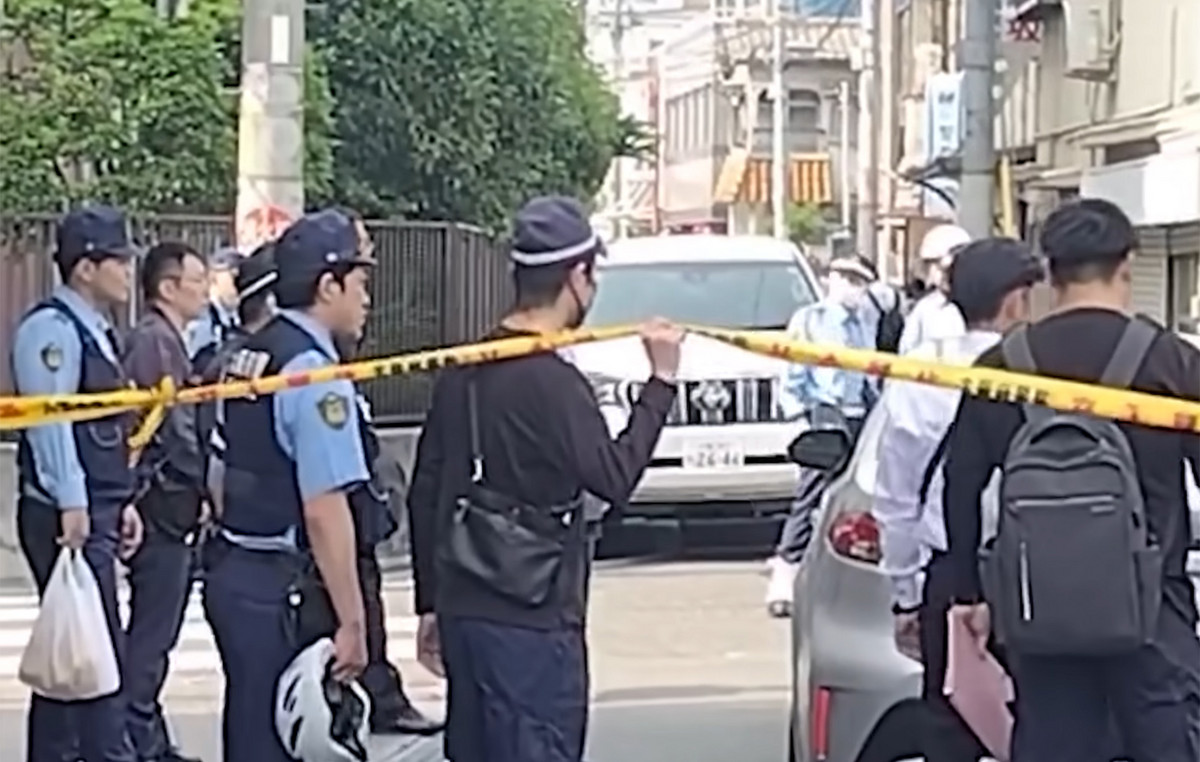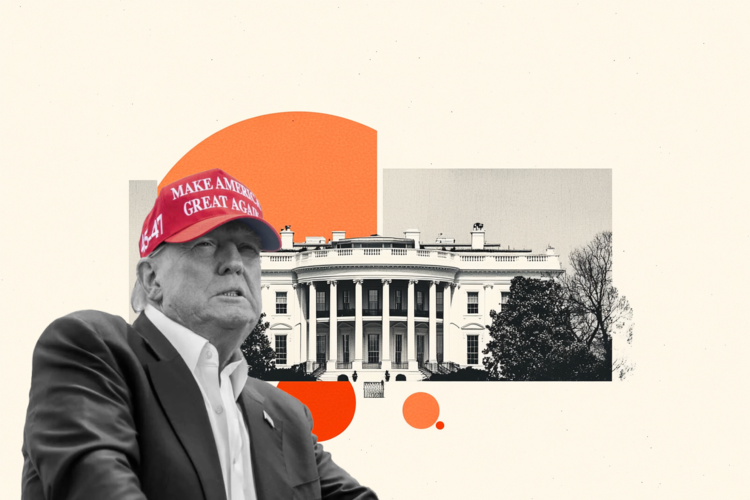Beijing is partially blocked to control a Covid outbreak that could completely shut down the Chinese capital. But just as the government is tightening controls in the city — testing 21 million residents, closing schools and some malls — I’m trying to get in.
Flights from Tokyo to Beijing this week were impossible to find – the closest available flight was to Kunming, southern Yunnan Province, about 2,600 kilometers away from the capital. There, I will spend 21 days in quarantine, and even then, there is no guarantee that I will be allowed to enter the Chinese capital.
China’s strategy of tight border controls, rapid lockdowns and mass testing worked in the early days of the pandemic to contain the spread of Covid-19, but the highly transmissible Omicron variant posed a much more difficult challenge.
Since mid-December, China’s average daily case count has climbed from double digits to more than 20,000. At least 27 cities across the country are under total or partial lockdown, impacting around 180 million people, according to calculations by the CNN.
Some of the strictest measures are in place in the country’s financial powerhouse Shanghai, where many of its 25 million residents have been locked inside their residential complexes for more than a month, creating discontent that has flooded China’s heavily policed internet.
Government censors are racing to keep up with a rising tide of anger over food shortages, lack of medical access and – for those who test positive – poor conditions in makeshift quarantine camps. Protests broke out – a rare occasion in authoritarian China – and residents clashed with police.
The number of cases in Beijing remains low compared to Shanghai – 34 new cases were reported in the capital on Friday, bringing the total number of cases to 228 during this outbreak.
But China is not holding back in trying to stop the virus from spreading within its political center.
Travel to China
My journey to China this week was even more difficult than when I traveled to Beijing in February for the Winter Olympics, held under the strictest Covid measures in the world.
Then officials, media and athletes were separated from the Chinese public by an extensive network of physical barriers, quarantine periods and regular Covid testing.
Now, to enter China, I had to present three negative PCR tests from government-approved clinics, done seven days before departure, then two more within 48 hours of flight.
On the plane, all flight attendants wore protective suits, as did the staff at Kunming Airport. Upon landing, all passengers on my flight were immediately told to take another Covid test with a nasal and throat swab.
Most of the passengers on my flight appeared to have Chinese passports.
Foreigners can only enter in very limited circumstances, and it is exceptionally difficult for American journalists to obtain visas to China due to deteriorating relations between the United States and China.
Both countries agreed to relax visa restrictions for journalists after a meeting between US President Joe Biden and Chinese leader Xi Jinping last November. I received a visa earlier this year after several rounds of interviews.
But still, when I handed over my US passport, the immigration officer spent several minutes flipping through the pages, then called out to a group of workers with “police” written on their protective suits. It felt like I was the only one on the flight that was pulled to the side.
They took me to a private room for interrogation and, after a lengthy police questioning about my professional and personal life, I was allowed to continue through immigration and customs.
After going through immigration, I struck up a conversation with the man next to me as we waited to board the bus to the quarantine hotel. He is from Shanghai but has lived in Japan for 30 years.
He hadn’t returned to China since the start of the pandemic, but eventually decided that the 21-day quarantine to enter the country was worth it to visit his elderly mother in Shanghai. The city is now under a week-long Covid lockdown, so his only option was to fly to Yunnan and wait until the situation improves.
China’s National Health Commission said Friday that the “Covid-19 zero policy” has shown early results in Shanghai, and the situation across the country is showing a downward trend.
21 days in quarantine at the hotel
There wasn’t a single empty seat on the bus, and our luggage was piled up in the aisles. From the window of the bus, I watched Kunming, a city of 6.6 million people, with its bright lights illuminating buildings and highways.
After a two to three hour drive, we arrived at our quarantine location: a hotel converted into a quarantine facility. Workers in protective suits escorted me to my room.
The next morning, I noticed that my room has a breathtaking view – an expanse of green trees and mountains dotting the horizon. Kunming is the capital of Yunnan Province, a popular tourist destination famous for its beautiful scenery and tea-producing regions.
There’s a balcony, but I can’t go out. But I am grateful for the view and, more importantly, the ability to open the window for fresh air – in some quarantine facilities this is prohibited.
I cannot open my door except for health checks and food collection. I get two temperature checks a day and regular Covid tests, sometimes twice a day.
Food deliveries are not allowed, but breakfast, lunch and dinner are included in the quarantine fees, which vary depending on the hotel you are taken to – there is no way to choose where to go.
Meals come in plastic containers, placed on a chair outside the door three times a day – typically rice, soup and fried meats and vegetables.
In my room, there is no refrigerator, microwave or laundry services. Only one towel is distributed for all 21 days. I got my own yoga mat for jumping rope and weights for exercise. Despite the hot weather – around 30ºC – the hotel does not turn on the air conditioning due to concerns about the transmission of Covid.
Assuming I continue to test negative, I may still not make it to Beijing. If the capital goes into total lockdown, all flights will likely be cancelled.
Even before this latest outbreak, arrivals from parts of China deemed “high risk” were required to spend an additional 14 days in government quarantine in Beijing.
Fortunately, Yunnan is not one of those parts at the moment. Domestic travelers arriving from lower-risk destinations are required to spend at least seven days locked in their homes for health monitoring.
Chinese officials have doubled down on the zero Covid policy, arguing that it has allowed the country to avoid the explosion of deaths in other parts of the world and will buy time to vaccinate vulnerable groups such as the elderly and children.
“If we lose Covid control measures, a large number of people will be infected with many critical patients and deaths, causing the medical system to be overloaded,” said Deputy Director of the National Health Commission, Li Bin.
But critics say the policy is more about politics than science.
President Xi has put his personal stamp on “zero-Covid,” and officials often use the low death rate to argue that China’s system is superior to that of the West, where restrictions have eased reflecting rising vaccination rates.
But in China, there are no signs of change and people are getting tired.
In the third year of the pandemic, China still refuses to live with Covid. No case is tolerated, whatever the cost.
Source: CNN Brasil
I’m James Harper, a highly experienced and accomplished news writer for World Stock Market. I have been writing in the Politics section of the website for over five years, providing readers with up-to-date and insightful information about current events in politics. My work is widely read and respected by many industry professionals as well as laymen.







